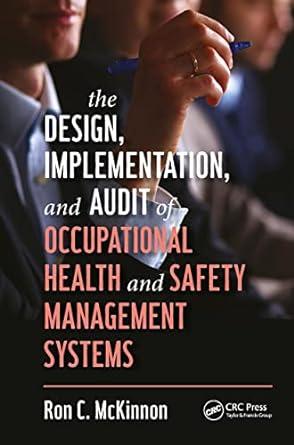Question
Make-or-Buy, Traditional Analysis Morrill Company produces two different types of gauges: a density gauge and a thickness gauge. The segmented income statement for a typical
Make-or-Buy, Traditional Analysis
Morrill Company produces two different types of gauges: a density gauge and a thickness gauge. The segmented income statement for a typical quarter follows.
| Density Gauge | Thickness Gauge | Total | |||||
| Sales | $ | 171,000 | $ | 91,200 | $ | 262,200 | |
| Less variable expenses | 91,200 | 52,440 | 143,640 | ||||
| Contribution margin | $ | 79,800 | $ | 38,760 | $ | 118,560 | |
| Less direct fixed expenses* | 22,800 | 43,320 | 66,120 | ||||
| Segment margin | $ | 57,000 | $ | (4,560) | $ | 52,440 | |
| Less common fixed expenses | 34,200 | ||||||
| Operating income | $ | 18,240 | |||||
| * Includes depreciation. | |||||||
The density gauge uses a subassembly that is purchased from an external supplier for $25 per unit. Each quarter, 2,280 subassemblies are purchased. All units produced are sold, and there are no ending inventories of subassemblies. Morrill is considering making the subassembly rather than buying it. Unit-level variable manufacturing costs are as follows:
| Direct materials | $2 |
| Direct labor | 3 |
| Variable overhead | 2 |
No significant non-unit-level costs are incurred.
Morrill is considering two alternatives to supply the productive capacity for the subassembly.
- Lease the needed space and equipment at a cost of $30,780 per quarter for the space and $11,400 per quarter for a supervisor. There are no other fixed expenses.
- Drop the thickness gauge. The equipment could be adapted with virtually no cost and the existing space utilized to produce the subassembly. The direct fixed expenses, including supervision, would be $43,320, $9,120 of which is depreciation on equipment. If the thickness gauge is dropped, sales of the density gauge will not be affected.
Required:
1. Should Morrill Company make or buy the subassembly?
If it makes the subassembly, which alternative should be chosen?
"Drop the Density Gauge or Drop the thickness gauge?"
Enter the relevant costs of each alternative.
| Lease and Make | Buy | Drop Thickness Gauge and Make | |
| Total relevant costs | $ | $ | $ |
2. Suppose that dropping the thickness gauge will decrease sales of the density gauge by 10 percent. What decision should now be made?
Possible answers
- Drop the thickness gauge and produce the subassembly?
- Keep the thickness gauge and buy the subassembly ?
3. Assume that dropping the thickness gauge decreases sales of the density gauge by 10 percent and that 3,192 subassemblies are required per quarter. As before, assume that there are no ending inventories of subassemblies and that all units produced are sold. Assume also that the per-unit sales price and variable costs are the same as in Requirement 1. Include the leasing alternative in your consideration. Now, what is the correct decision?
Possible Answers
- Drop the thickness gauge and produce the subassembly
- Keep the thickness gauge and buy the subassembly
- Lease the space and make the subassembly
Step by Step Solution
There are 3 Steps involved in it
Step: 1

Get Instant Access to Expert-Tailored Solutions
See step-by-step solutions with expert insights and AI powered tools for academic success
Step: 2

Step: 3

Ace Your Homework with AI
Get the answers you need in no time with our AI-driven, step-by-step assistance
Get Started


